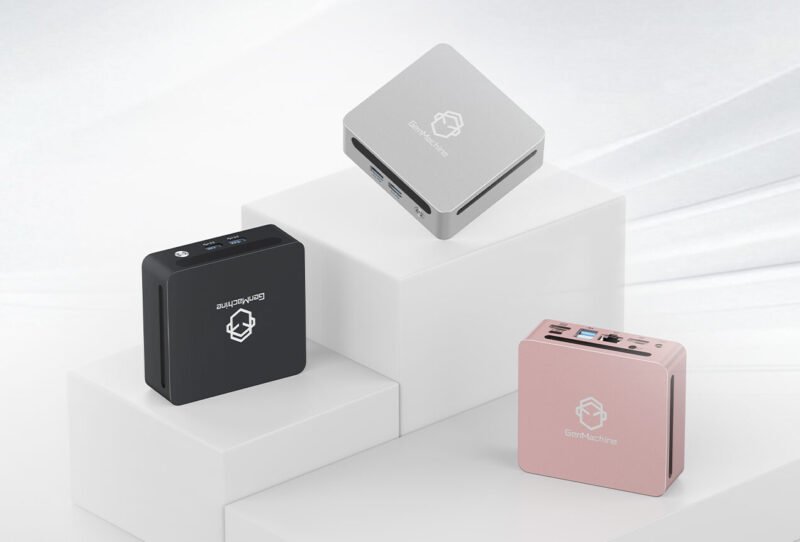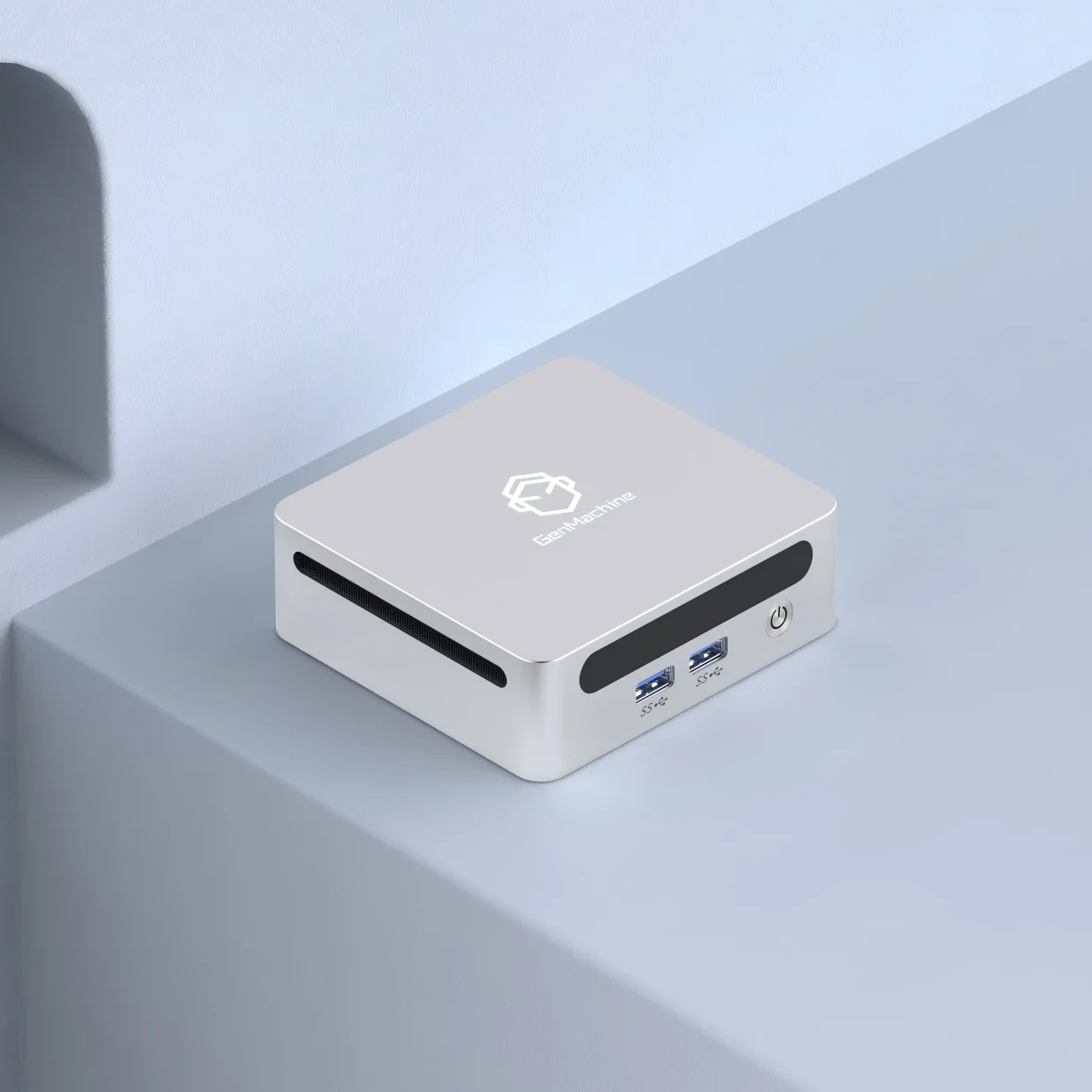The era of the giant, room-heating desktop tower dominating your workspace is fading. In its place, the mighty Mini PC has emerged—a compact powerhouse that delivers surprising performance without demanding all your desk space. It’s not just a niche product anymore; industry analysis from firms like Allied Market Research projects the global mini PC market to grow significantly, reflecting a major shift in what users expect from their computers.
Quick-Look Buyer's Table
| User Profile | Example CPU Model | RAM | Storage | Key Feature to Look For |
| The Media Streamer | AMD R5 5600H | 8-16GB | 512GB | Silent operation, HDMI 2.1 |
| The Office Professional | Intel Core i5-13500H / AMD Ryzen 5 7640HS | 16GB | 512GB+ | Support for multiple monitors |
| The Casual Gamer | AMD Ryzen 7 7840HS | 16GB-32GB | 1TB+ | Strong Radeon 780M graphics |
| The Creative Pro | Intel Core i7-13700H / AMD Ryzen 9 7940HS | 32GB+ | 1TB+ | Thunderbolt/USB4 for fast transfer |

Start with Your "Why": Define Your Primary Use Case
The single most important step in choosing a mini PC is to clearly define its primary purpose. A machine perfect for web browsing will struggle with video editing, and a gaming rig is overkill for checking emails.
Home & Office Use: For tasks like web browsing, document editing, spreadsheets, and video conferencing, you don’t need a top-tier processor. Look for models with an Intel Core i3/i5 or AMD Ryzen 3/5 CPU, 8GB to 16GB of RAM, and at least a 512GB SSD for files storage.If you want to konw the most worth-buying Mini PCs in 2025, you can check our guide Top 5 Office Mini PCs for Work under $350.
Home Theater & Media Center (HTPC): Your priority here is smooth 4K video playback and quiet operation. A modern CPU with strong integrated graphics is sufficient. Prioritize models with HDMI 2.0 or 2.1 ports, ample storage for media files (512GB+ SSD), and an effective, quiet cooling system—or even a fanless design.
Content Creation & Demanding Workloads: For photo editing, 1080p video rendering, or heavy multitasking, the CPU is king. Opt for a high-performance Intel Core i7/i9 or AMD Ryzen 7/9 processor. 16GB of RAM is the minimum, but 32GB is strongly recommended for a smoother experience. A large, fast 1TB or greater NVMe SSD is also crucial. 1
Casual & Esports Gaming: Modern mini PCs can be surprisingly capable gaming machines, especially for esports titles like Valorant or AAA games at 1080p. The key is a strong integrated GPU. AMD’s Ryzen 7 and Ryzen 9 processors with integrated Radeon 780M or 890M graphics are class leaders here. Pair this with 16GB or 32GB of fast DDR5 RAM for the best results. For more serious gaming, a few high-end models include mobile dedicated GPUs or eGPUs like an NVIDIA RTX 4060 , but these come at a premium. If you are interested in buying a gaming Mini PC, you can check our article Top 5 Gaming Mini PCs for Casual and Mid-Level Gamers.

The Core Components: What Really Matters
Once you know your primary use case, you can start matching it with the right hardware. Think of it less as a checklist and more as a balancing act.
Processor (CPU): The Engine of Your PC
The CPU is the brain, and its performance can vary dramatically between models. To put this in perspective, let’s look at a common benchmark, Cinebench R23, which tests raw processing power.
Intel Processors: You’ll see power-efficient N-series (like the N100) in budget machines, which might score around 3,500 on Cinebench. They’re great for basic tasks. For more performance, a mid-range Core i5 (like the 13500H) can easily jump to over 13,000 points, making it excellent for demanding office work.
AMD Processors: AMD’s Ryzen 5, 7, and 9 series are often praised for their powerful integrated graphics. A performance-focused and cost-effective chip like the Ryzen 7 7840HS often pushes past 16,000 points on the same test. These numbers aren’t just for bragging rights; they translate directly to how fast a machine can render a video or compile code.
Memory (RAM): For Juggling Tasks
RAM is your computer’s short-term memory. The more you have, the more applications and browser tabs you can run simultaneously without slowdowns.
8GB: The absolute minimum for a smooth Windows experience. Fine for a dedicated media streamer.
16GB: The sweet spot for most people. It provides plenty of headroom for heavy web browsing, office applications, and general multitasking.
32GB and above: Recommended for power users, developers running virtual machines, or anyone doing serious video editing.
Storage (SSD): For Speed and Space
- Capacity: 256GB is a bit tight. 512GB is a much more comfortable starting point, while 1TB is ideal for users who store large files or games. Also, check if the mini PC has a spare slot for adding a second drive later on.
The Overlooked Advantages: Power and Noise
Beyond raw speed, mini PCs have a distinct advantage in power consumption. A typical mini PC might draw just 10-15 watts at idle and 50-85 watts under heavy load. Compare that to a traditional desktop tower, which can consume 100 watts at idle and anywhere from 250 to 500+ watts when gaming. Over a year, this leads to tangible savings on your electricity bill. This low power draw also means less heat, allowing for quieter fan systems.

Conclusion
Choosing a mini PC is an exercise in matching technology to your lifestyle. By first identifying your needs and then aligning them with the core components—CPU, RAM, storage, and connectivity—you can cut through the marketing noise. Don’t overspend on a high-end gaming model if you just need to stream movies, and don’t skimp on RAM if you live with 50 browser tabs open. With a clear understanding of your own requirements, you can confidently select a compact PC that will be the perfect, unobtrusive heart of your digital world.





